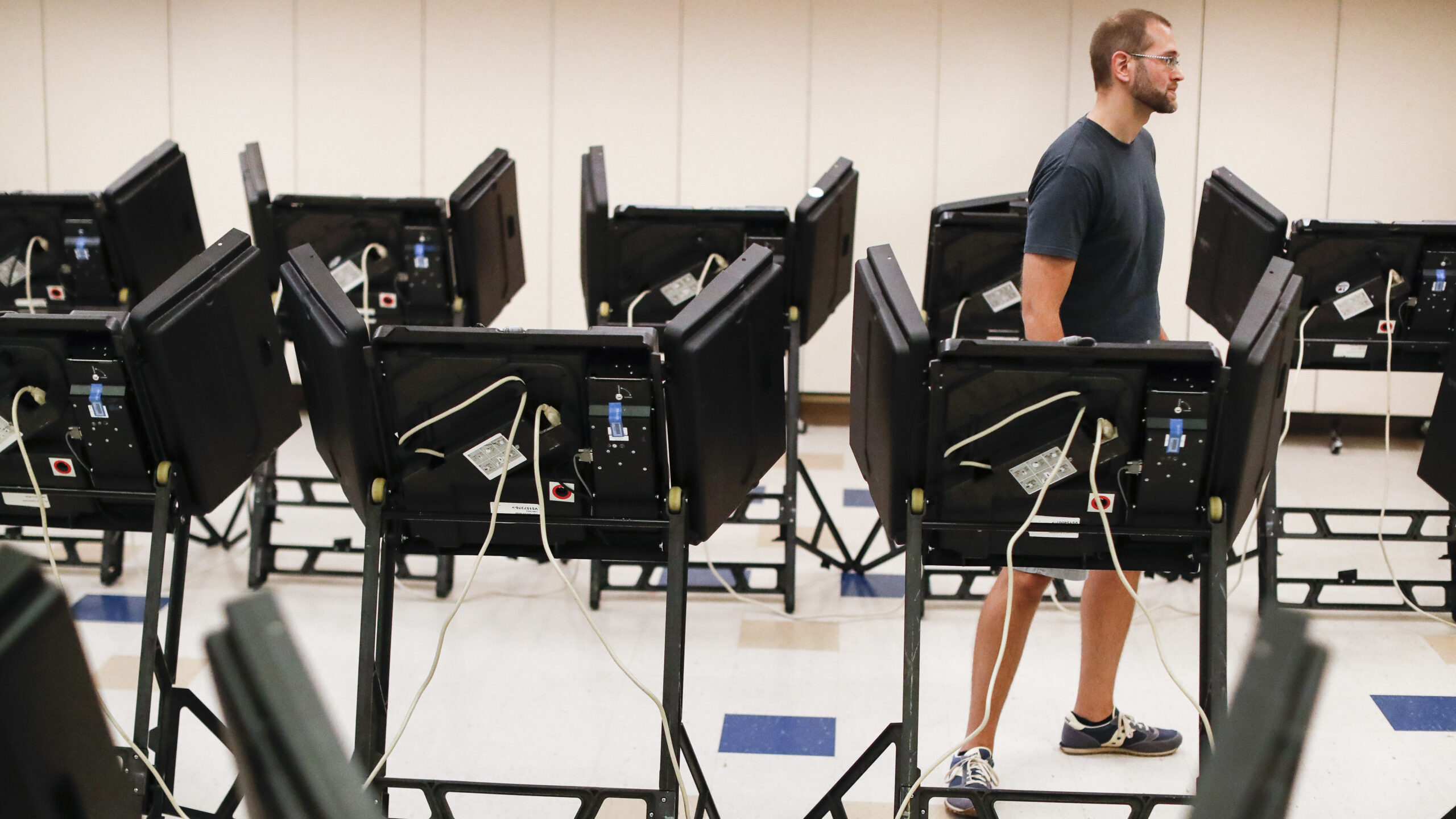Kemp, Abrams Have A History Of Conflict Over Voting

Brian Kemp and Stacey Abrams have sparred over voting for years, and things have flared up again.
John Minchillo / Associated Press
Voting rights is a contentious issue across the country this election season. Nowhere is that more clear than Georgia where the Republican gubernatorial nominee Brian Kemp is also Secretary of State — and thus in charge of the state’s elections.
He and his Democratic opponent, Stacey Abrams, have sparred over voting for years, and things have flared up again.
The latest occurrence? The news that 53,000 Georgians who applied to register to vote are on the “pending” list due to the state’s exact match policy. It’s spurred calls for Kemp’s resignation from Abrams — and about 150 people at a rally outside the Georgia State Capitol Friday.
These pending voters can still vote in this election if a state ID at the polls clears up the discrepancy, and a similar policy has been upheld in federal court in Florida.
But that doesn’t make up for the conflict of interest, according to Lydia Meredith, an Atlantan who was at the rally.
“If you’re going to win something, win it honestly, not dishonestly,” she said. “It’s a travesty that the Secretary of State has not already resigned because he’s a candidate in the election that he has the office of overseeing.”
Kemp’s campaign communications director, Ryan Mahoney, said the registration issue has been blown out of proportion.
“This is a manufactured crisis, by Stacey Abrams for Stacey Abrams,” he said. “So, calls for resignation or calls for anything from the left should be completely ignored because they’re completely dishonest and they’re just trying to feign outrage to try to turn out their base of support.”
A spokesman for the Georgia Secretary of State’s office called the whole uproar a “publicity stunt the media falls for year after year.”
Exact Match
Exact match has been a policy of Kemp’s office since 2010. If applications do not exactly match information on file with other government databases, down to punctuation errors, they are put on hold. The Associated Press reports that nearly 70 percent of those with applications currently pending are African-American.
Several civil rights groups including the New Georgia Project, funded by Abrams, challenged it in court in 2016. Following a settlement, parts of the policy were suspended. But in 2017, the Republican-controlled state legislature made it a law. So, some of the same groups sued Kemp again last week, arguing the law violates the Voting Rights Act.
Brian Kemp’s campaign blames the pending list on “sloppy” work by Abrams’ New Georgia Project, which focuses on registering minority and young voters. Abrams said it has registered over 250,000 voters.
Kemp’s office actually investigated the New Georgia Project for fraud back in 2014. The investigation was later dropped.
Abrams told WABE earlier this month that as a state legislator, she fought “against legislation that unfortunately my opponent promoted, which restricted access to the right to vote by allowing the closure of polling places, by limiting the types of ID’s available and that allowed what has been a disqualified system of exact match which disproportionately affects women and people of color.”
“For me the question of voting is about expanding the right,” she said. “Unfortunately my opponent has made his mission as Secretary of State restricting that right and eliminating access in ways that have really harmed the body politic.”
Kemp maintains his policies are protecting the integrity of Georgia’s elections.
He points to recent comments from Abrams, who said “documented and undocumented” people will be part of Georgia’s “blue wave.”
Kemp appeared on Fox News Monday morning and said, “I think hard-working Georgians should decide who their governor is, not people here illegally like my opponent wants.”
Abrams responded that Kemp is “deliberately taking her comments out of context.”
Ultimately, this issue is likely to fire up voters from both parties.
A recent NPR-Marist poll found that 56 percent of Republicans consider voter fraud the biggest threat to this fall’s elections compared to 12 percent of Democrats.
Early voting in Georgia started today.








